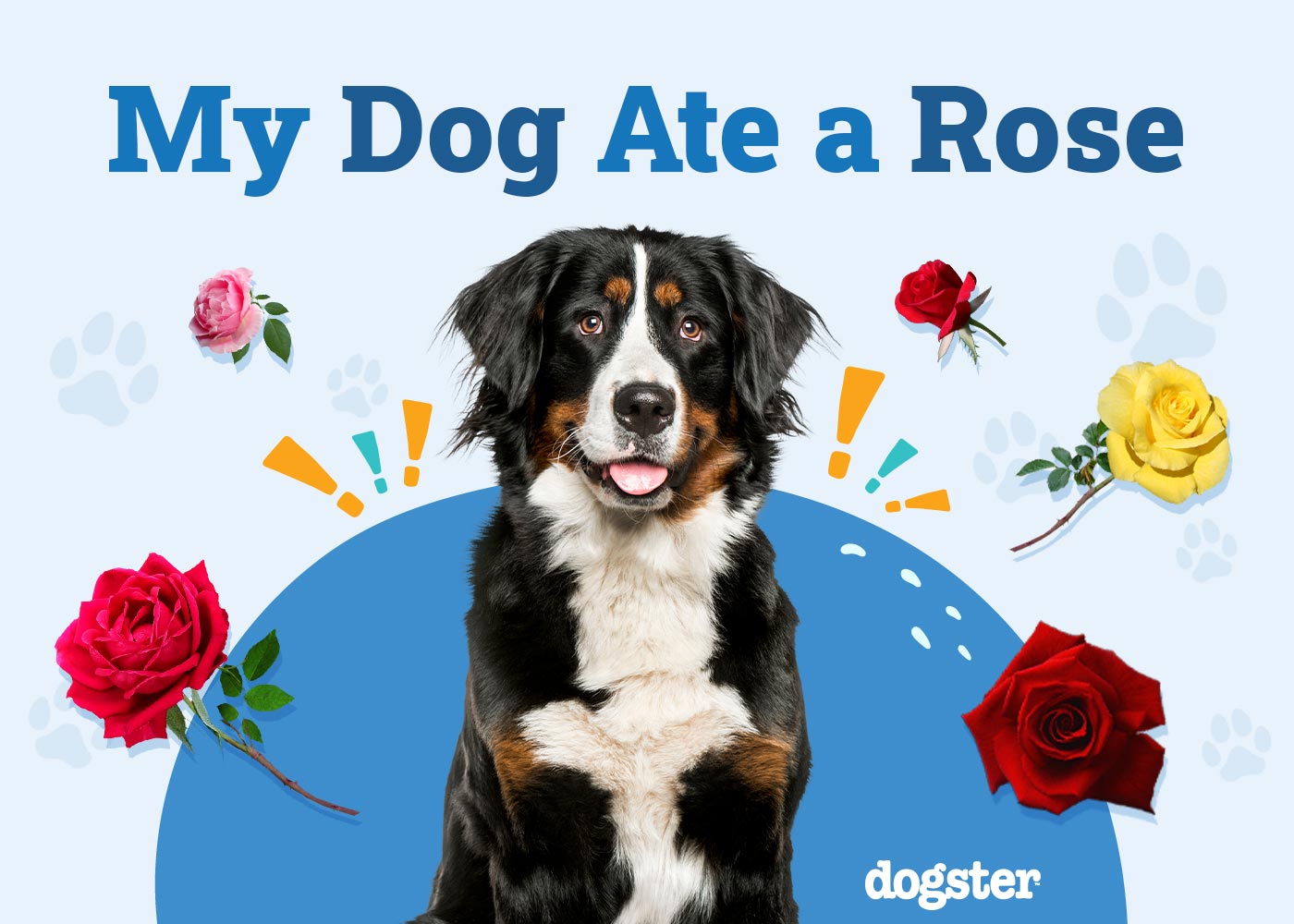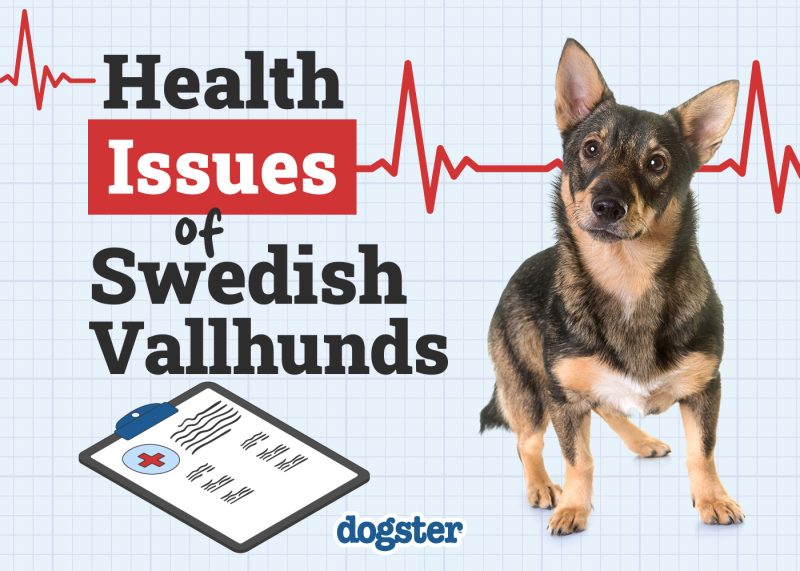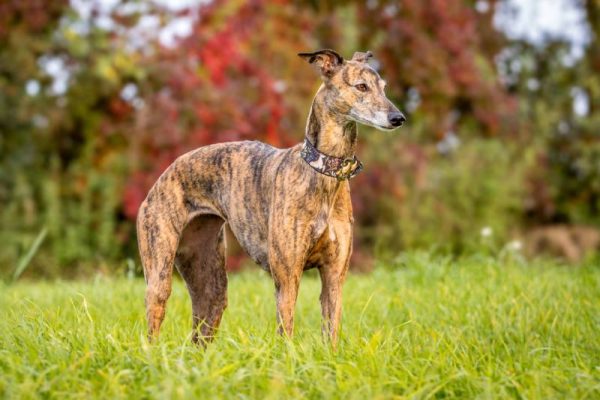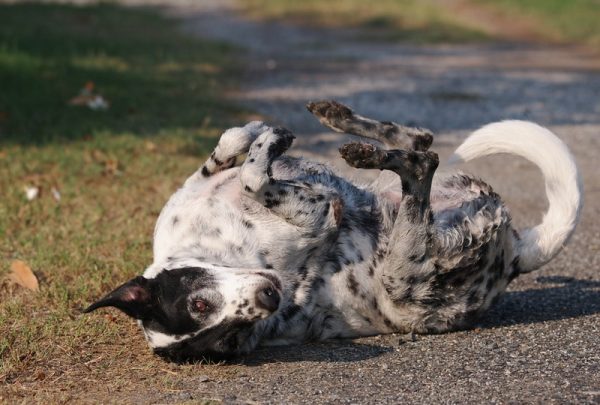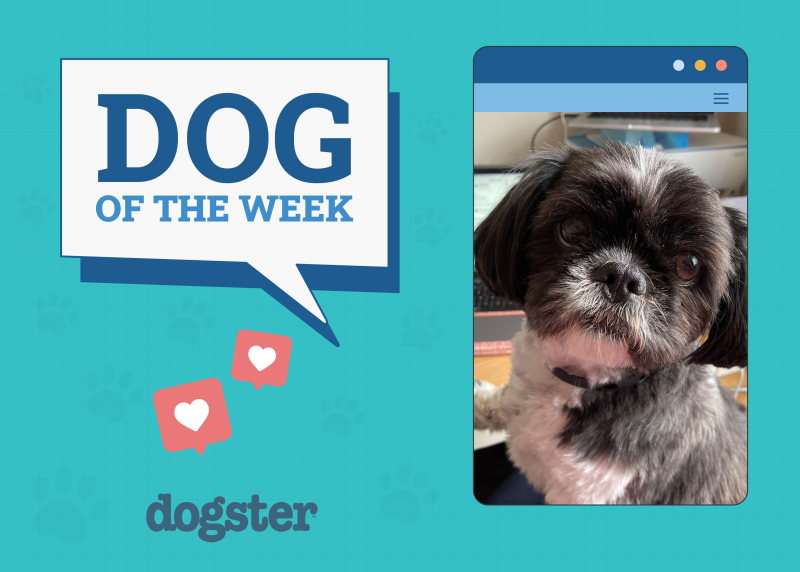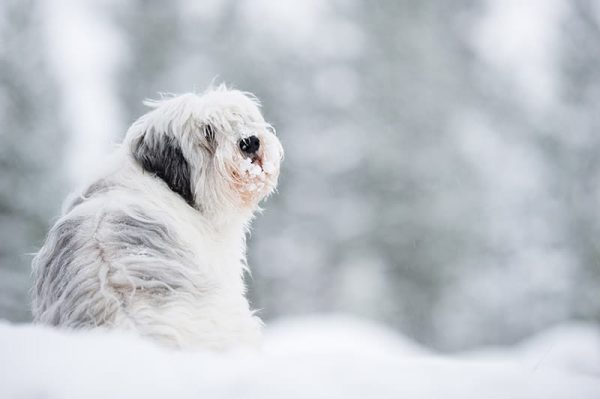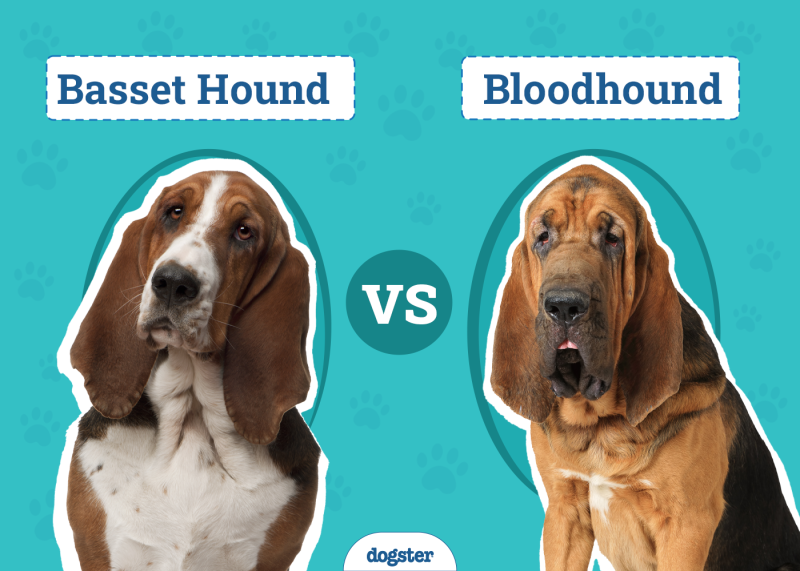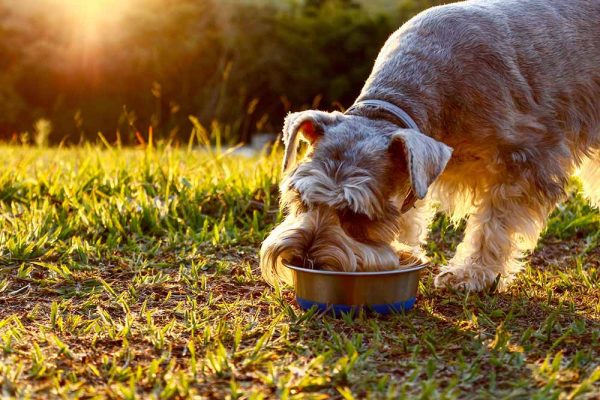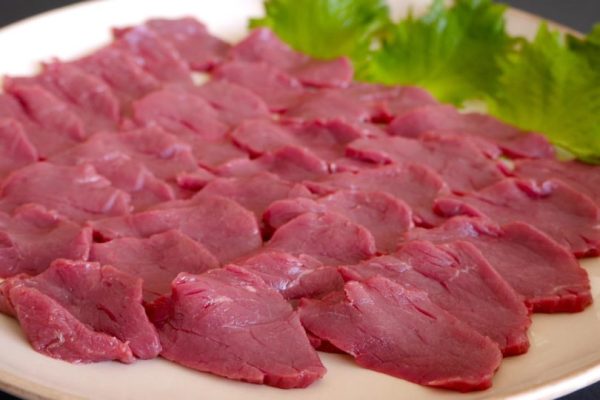In this article
If your dog has eaten a rose, don’t panic; roses are not toxic to dogs. At worst, it can give your pup an upset stomach, which will resolve in a day or two.
However, if the rose that your dog ate was treated with insecticides or fungicides, it could cause problems because those chemicals are toxic, so it would be best to take them to the vet as soon as possible.
The sweet and fragrant smell of roses can be attractive to dogs and make them want to taste them. While these plants are not toxic to dogs, the thorns could hurt them. Also, if your pup consumes roses in large quantities, they may suffer from vomiting and diarrhea. Roses that have been sprayed against insects or fungi are toxic to pets and can cause poisoning. Common clinical signs of insecticide poisoning include vomiting, diarrhea, rapid heart rate, hypersalivation, and/or nervous signs.
Are Roses Safe for Dogs?
Rose petals are safe for dogs as long as they are not sprayed with various chemicals to prevent insects, weeds, and other pests. Substances commonly used to improve roses, such as cocoa mulch, can also cause problems.
Insecticides, Acaricides, Fungicides, & Herbicides
A wide range of chemicals are used to prevent insects, mites, weeds, or fungi from attacking or feeding on plants, including roses. These substances are sprayed on the whole plant or placed at the roots.
The most common chemicals used to treat roses that could cause poisoning in dogs are organophosphates, carbamates, and pyrethrins. The clinical signs of poisoning in dogs with these chemicals usually develop when pets have been excessively exposed to them.
- Fever
- Vomiting
- Diarrhea
- Tremor
- Incoordination
- Rapid heart rate
- Breathing difficulties
- Hypersalivation
- Nervous signs
- Convulsions
- Death
If you think that your dog has eaten a sprayed rose, take them to the vet as soon as possible.
If you need to speak with a vet but can't get to one, head over to PangoVet. It's our online service where you can talk to a vet online and get the advice you need for your pet — all at an affordable price!
Cocoa Mulch
Cocoa mulch is a secondary product from cocoa production and is often used in gardens to increase soil vitality. It is fragrant, smells like chocolate, and can attract dogs to consume it.
Being a by-product of cocoa production, it contains theobromine and is toxic to dogs. Cocoa mulch can also be dangerous if ingested in large quantities. As with chocolate, the severity of the clinical signs is directly proportional to the amount of cocoa mulch that dogs consume.
- Vomiting
- Diarrhea
- Muscle tremors
- Nervous signs
- Seizures

Potential Complications That Can Occur When Your Dog Eats Roses
Complications will likely not occur if your dog eats a few rose petals or even the whole flower, but they can if your dog consumes roses in large quantities or eats something else from the rose plant besides the bloom, such as the stem, leaves, or thorns. The most common complications that can occur are as follows.
1. Blockages
If your dog consumes large numbers of rose petals, leaves, or stems, there is a risk of them creating a blockage in the digestive tract. Intestinal blockages are among the most common medical emergencies in veterinary medicine because dogs often consume things that they shouldn’t.
Intestinal blockages can be partial (when digested material can still pass through the intestine) or complete (when nothing can pass through the intestine). The most common signs of intestinal blockage in dogs include:
- Loss of appetite
- Vomiting
- Diarrhea/straining/unable to poop
- Weakness
- Abdominal pain
- Bloating
If the blockage is partial, it can resolve itself with appropriate supportive treatment. In the case of complete blockages, surgery is the only treatment that can help dogs in this situation.

2. Stomach Problems
If your dog consumes one to two rose petals or leaves, there should be no problem. But if they consume large quantities of rose, it could cause digestive problems, such as vomiting and diarrhea. These clinical signs should resolve within a few days. If your dog still has digestive problems after 2 days, take them to the vet for an examination.
3. Skin Lesions from Rose Thorns
If your dog tries to chew the stem of the rose, they can be scratched by its sharp thorns. In this case, you could notice redness and scratches on their paws, around the muzzle, and even near the eyes.
- Hypersalivation
- The dog often putting their paw to their mouth
- Injuries in the mouth and throat
- Decreased appetite
- Scratches on the face
- Redness or scratches on the paws
- Redness around the muzzle
- Possible bleeding in the scratched areas
In any of these cases, it is recommended to take your dog to the veterinarian for an evaluation and proper treatment. Rose thorn scratches are not a matter of life and death, but if the scratches are deep or your dog has scratched their eyes, a vet’s intervention is necessary.
You must also be careful with “roses” that are not actually part of the Rosa family. Plants like dahlias, peonies, begonias, camellias, and ranunculus look similar to roses, but some of these can cause health problems if ingested.
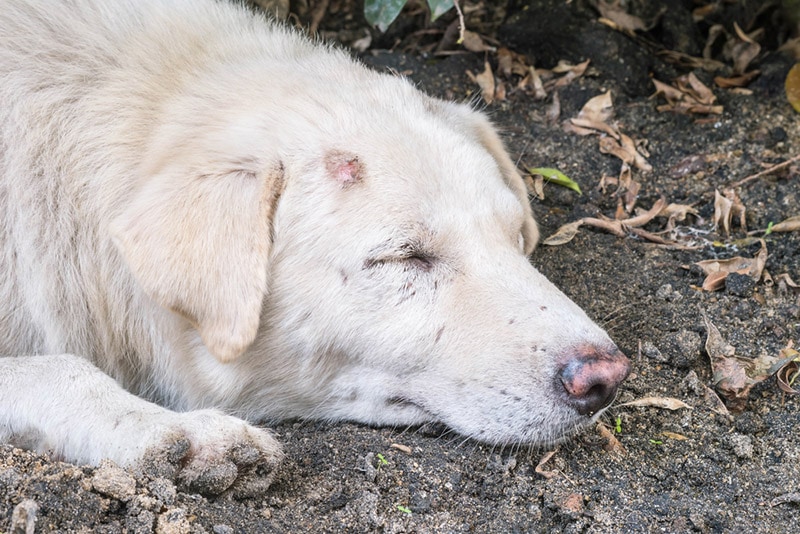

What to Do If Your Dog Ate a Rose
If you believe that your dog ate a rose or multiple roses, here is what you can do:
- First, make sure that what your dog consumed was a real rose. Roses from the Rosa family are not toxic to dogs. But if they have been sprayed, they can cause health problems. So, if you suspect that the roses that your dog ate were sprayed with chemicals, contact the veterinarian. If you suspect that your dog has eaten a “fake” rose, identify the plant, or take it to the vet along with your pet.
- Look in your dog’s mouth and on their body to ensure that they do not have stuck thorns or scratches. Minor scratches are not a problem. Major ones may require the intervention of a veterinarian and subsequent treatment.
- Remove any thorns from the mouth or skin. Go to the vet if you can’t remove them yourself. You must also remove the remains of petals, leaves, or stem from your dog’s mouth.
- Monitor your dog to see if they develop any clinical signs.
Puppies, senior dogs, or sick dogs are more prone to complications.

FAQ
How Can I Prevent My Dog from Chewing My Rose Bushes?
The best solution to make your dog stop chewing your rose bushes is discipline. Good training will help change this unwanted behavior. You can also try to plant varieties of roses that do not have thorns to ensure that your dog at least does not scratch themselves.
Is It Safe to Have Roses With Dogs in the House?
No part of the rose plant is toxic to dogs, so it is safe to keep roses in the house (cut or in pots). However, do not keep them in an area where your dog can easily reach them. The thorns can scratch your pet, or your dog might try to eat the stems (which are woody and can cause digestive problems).
Why Does My Dog Eat Plants?
Dogs explore their environment with all five senses, the most used ones being smell and taste. Dogs like to try different textures, and that is why they chew almost everything that comes their way, and plants are no exception. They may also eat various plants for the following reasons: boredom, poor diet, instinct, or the need for fiber.
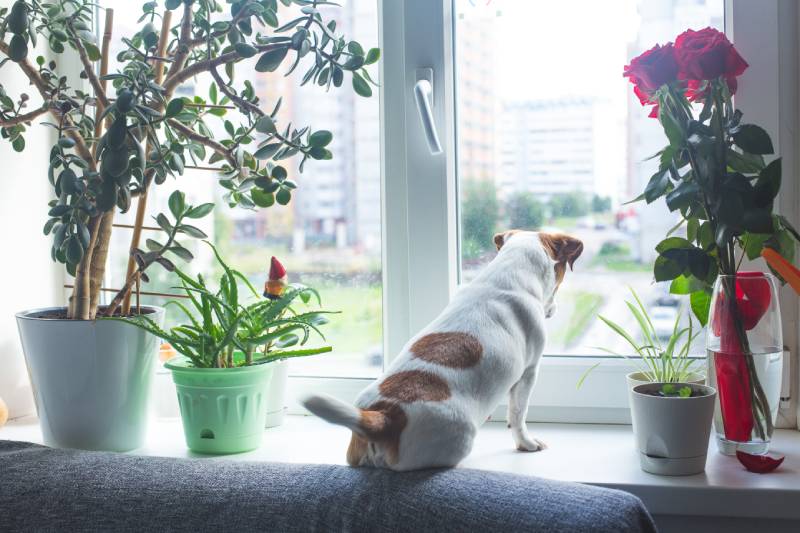

Conclusion
Roses are not toxic to dogs, so if your dog ate one or more, there should be no reason for concern. But if the roses were sprayed with chemicals, there is a risk that your dog will get poisoned, especially if the roses were freshly sprayed. If your dog consumes large numbers of rose petals, leaves, or stems, there is a risk of intestinal blockage or digestive problems, such as vomiting and diarrhea. In addition to these risks, roses that have thorns can scratch your dog’s skin, mouth, or eyes, and these scratches may require veterinary attention. In any case, if your dog has eaten roses and starts vomiting, has diarrhea, nervous signs, or tremors, stops defecating or eating, etc., contact the veterinarian as soon as possible.
See Also:
- My Dog Ate Nutella: Should I Be Worried? Our Vet Answers
- My Dog Ate Sand: Should I Be Worried? (Vet Answer)
